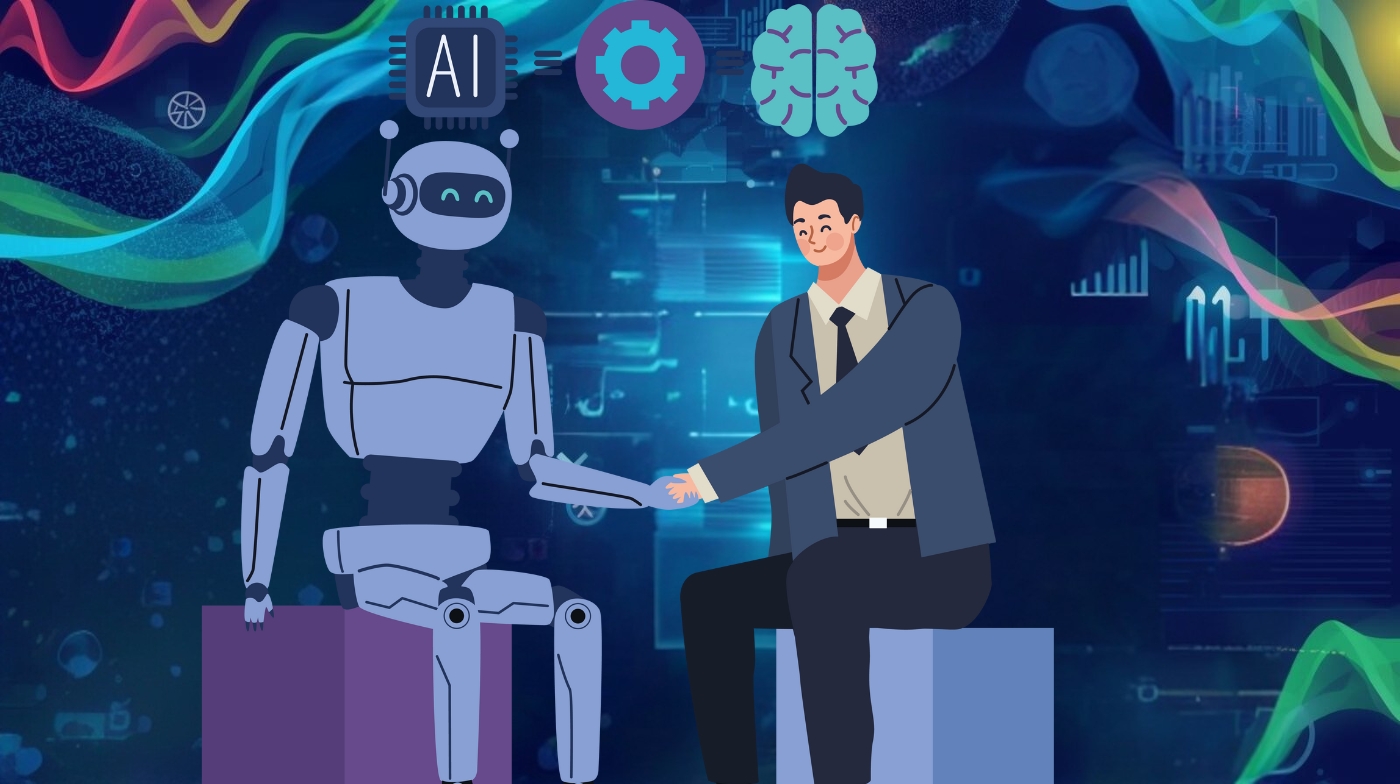The Future of Research – Where AI Meets Human Curiosity

Introduction
Research has always been the cornerstone of human progress. From early scientific discoveries to groundbreaking technological innovations, curiosity drives us forward. But the tools we use to research have evolved dramatically. Today, artificial intelligence (AI) is reshaping how we collect, analyze, and interpret knowledge. The future of research will be defined not by humans or AI alone, but by their collaboration.
In this blog, we’ll explore how AI is transforming research, what the future might look like, and why human creativity and curiosity will remain irreplaceable.
The Evolution of Research Tools
- Traditional Research: Manual collection, libraries, interviews, and lab experiments.
- Digital Research: Online databases, search engines, and digitized archives.
- AI-Powered Research: Automated literature reviews, predictive simulations, and natural language processing tools like ChatGPT.
Each step has made research faster and more comprehensive, but AI represents a leap forward in both scale and capability.
How AI is Transforming Research
- Automated Literature Reviews: AI can scan thousands of papers in minutes, highlighting key themes and contradictions.
- Data-Driven Discovery: Machine learning identifies patterns invisible to humans.
- Predictive Simulations: AI models simulate scenarios in medicine, climate science, and economics.
- Natural Language Processing: Tools like ChatGPT summarize, explain, and brainstorm with researchers.
- Collaboration Platforms: AI integrates with cloud systems, enabling teams worldwide to share findings in real-time.
Case Study: AI in Medical Research
AI is revolutionizing healthcare research. For example, DeepMind’s AI model predicted protein folding structures, a puzzle that baffled scientists for decades. This breakthrough opened new doors for drug discovery and disease treatment. Instead of spending years on trial and error, researchers can now accelerate medical innovation with AI’s predictive power.
The Human Role in the Future of Research
While AI brings speed and scale, human curiosity and creativity remain the soul of research. AI can answer questions, but only humans can ask the right ones. Consider:
- Critical Thinking: Humans interpret meaning and relevance beyond raw patterns.
- Ethical Judgment: Research often involves sensitive data; humans must set ethical boundaries.
- Creativity: Innovation often comes from “thinking outside the box”—a uniquely human trait.
The future of research will rely on a hybrid model: AI doing the heavy lifting, while humans focus on judgment, imagination, and direction.
Opportunities Ahead
- Personalized Learning and Research: AI can adapt content to an individual researcher’s needs.
- Global Collaboration: Cloud-based AI platforms will connect researchers across borders.
- Accelerated Innovation: Faster hypothesis testing and experimentation.
- Interdisciplinary Insights: AI can bridge knowledge between fields like biology, physics, and economics.
Challenges to Overcome
- Bias in AI Models: If training data is biased, outcomes will be skewed.
- Over-Reliance on Automation: Risk of researchers becoming passive consumers instead of active thinkers.
- Data Privacy: Protecting sensitive information remains a priority.
- Ethical Questions: How far should AI go in shaping discoveries that affect humanity?
The Future Researcher: Skills Needed
The researcher of tomorrow will need both technical and human-centered skills:
- AI Literacy: Understanding how AI tools work and their limitations.
- Data Analysis Skills: Ability to interpret and validate AI-generated findings.
- Interdisciplinary Thinking: Drawing insights from multiple fields.
- Ethics and Policy Awareness: Balancing innovation with responsibility.
- Creativity and Curiosity: The ultimate drivers of discovery.
Case Study: Climate Science and AI
Climate change is one of the most complex problems facing humanity. AI is helping researchers process satellite imagery, weather patterns, and environmental data to predict future climate scenarios. However, it’s human decision-makers who must interpret this data and design sustainable policies. This example highlights the balance between AI’s predictive power and human accountability.
Future Trends in Research
- Augmented Intelligence: AI as a collaborator, not a replacement.
- Explainable AI: Models that clearly explain their reasoning to increase trust.
- Real-Time Research: Live data feeds enabling instant hypothesis testing.
- Citizen Science with AI: Everyday people contributing to research through AI-powered platforms.
FAQs on The Future of Research
Q1: Will AI replace researchers?
No. AI will assist but cannot replicate human curiosity, creativity, and ethics.
Q2: What industries will AI impact the most in research?
Healthcare, climate science, finance, education, and technology will see the greatest transformation.
Q3: How can students prepare for the future of research?
By learning data science, AI basics, critical thinking, and ethics, while cultivating curiosity and creativity.
Conclusion
The future of research lies at the intersection of human curiosity and artificial intelligence. AI accelerates discovery, processes massive datasets, and generates insights at unmatched speed. But human creativity, ethical judgment, and critical analysis ensure research remains meaningful and responsible.
The researchers who thrive in the coming decades will be those who harness AI without losing their unique human strengths. The future isn’t about AI replacing us—it’s about working alongside it to answer the world’s most pressing questions and unlock new possibilities.
The age of AI-powered research is here. The question is: are we ready to use it wisely?







